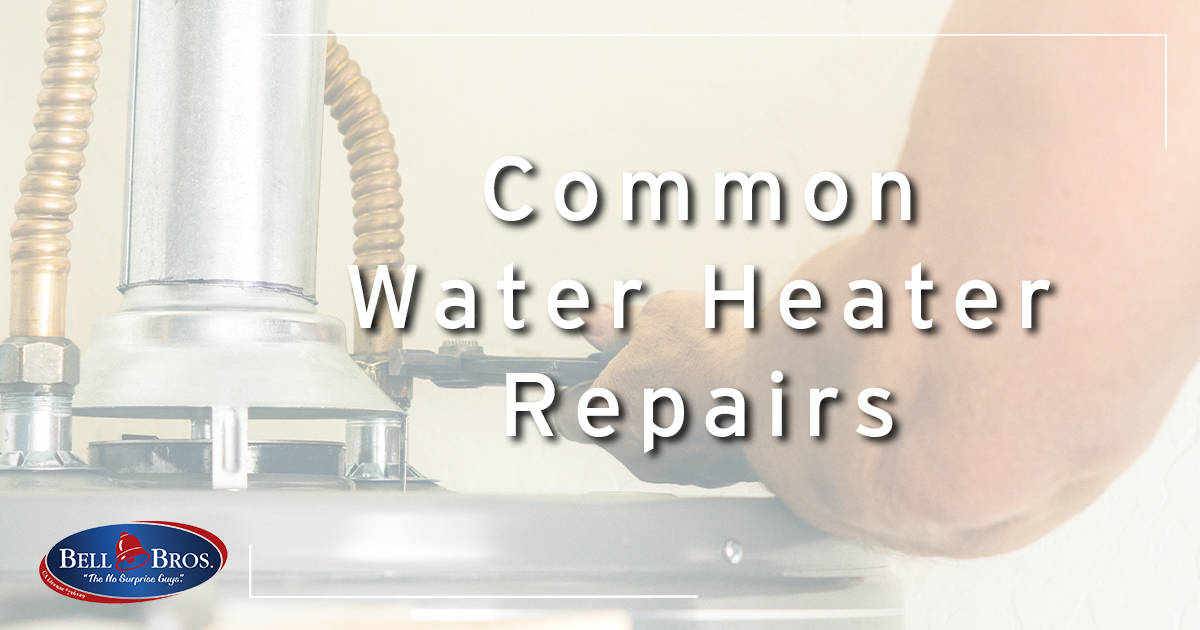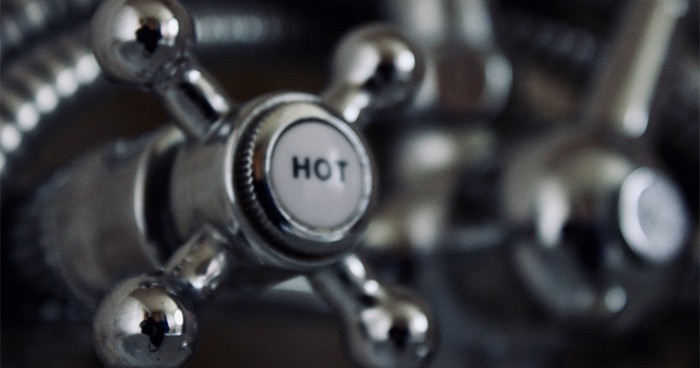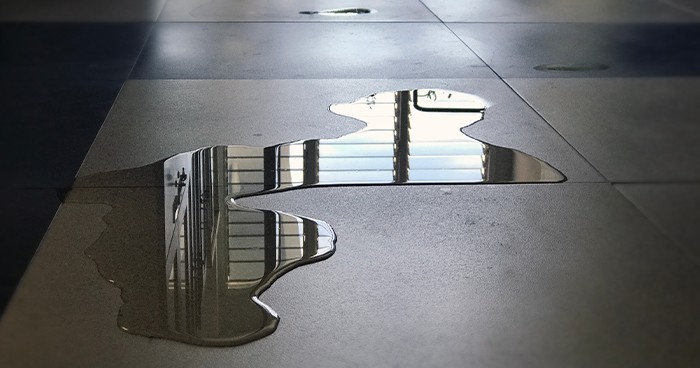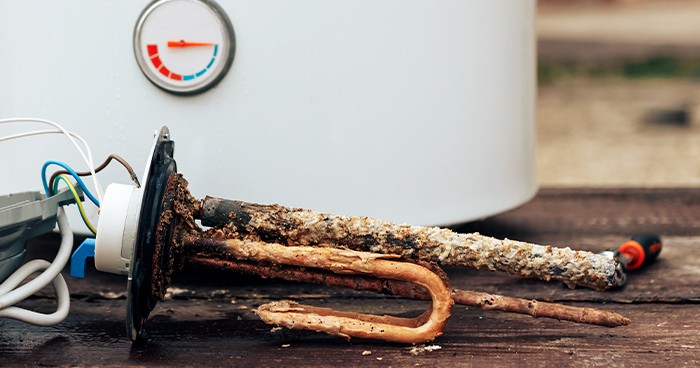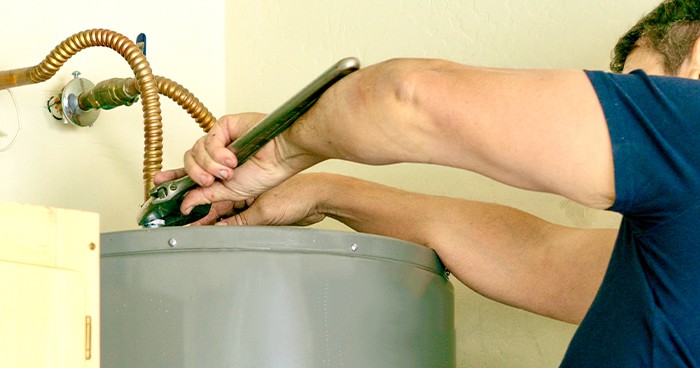Common Water Heater Repairs
There’s no nightmare quite like hopping in the shower on a Monday morning before work and feeling a blistering cold stream of water instead of a nice warm rush of heat. While cold showers may serve as a great wake up call, investing in water heater repair will bring back those comfortable, steamy showers.
Some of the signs of a damaged water heater include the obvious lack of hot water, fluctuating water temperature, rust-colored water, and even water that’s too hot. Leaking or pooling water is also a sign of a water heater in need of repair.
1. No Hot Water
The most obvious sign that you need water heater repair is no hot water. If you’re enabling heated water but are still getting cold H2O, it’s likely that a pilot light (for gas-powered water heaters) has blown due to a faulty thermocouple or pilot control valve. For electric water heaters, the heating element most likely needs to be replaced.
If you’re professionally trained, you’re most likely equipped to fly solo. Otherwise, water heater repair is a relatively simple job for a professional plumber.
2. Water Is Too Hot
On the other hand, if your water feels more like hot lava, it may be a sign that your water heater’s thermostats are set too high. You can check your water heater’s thermostats by:
- Cutting the power to your water heater.
- Accessing each heating element on your water heater by removing the access panel, insulation, and safety guards from each.
- Using a non-contact voltage tester on your heater’s wires to make sure the power is off.
- Checking both thermostats’ heat settings; each should read the same temperature (anywhere between 115 and 120 degrees Fahrenheit).
You can then use a flathead screwdriver to adjust the heat settings to your desired temperatures. Again, make sure both read the exact same setting before closing everything back up and restoring power.
If you’d rather not venture into the volcano yourself, adjusting water heater temperature is an easy job for a professional.
3. Leaking or Pooling Water
If your water heater is leaking, it may be time for a replacement. No matter how big or small the leak is, it’s likely a ramification of a larger problem that needs to be handled by a professional, especially if the tank itself is leaking.
Aside from the tank, water heater leaks can come from:
- Its pipes: Leaks can spur from the elbow joints that connect the hot water supply and the cold water supply line to the heater.
- Its gaskets: Gaskets can leak over time with continuous wear and tear.
- Its pressure relief valve: When pressure rises too high in your water heater, its pressure relief valve opens and the excess steam escapes, which immediately condensates into water and pools. The cause of this is likely an operating temperature that is too high.
If the tank itself is leaking due to a breach, it may be a sign of significant, long-term structural damage most likely caused by failure to remove built-up sediment from the tank. Leaving the leak alone makes the problem worse and increases the chances of flooding as well as greater structural damage.
At the very least, you’ll want to enlist professional help to discern 1) where the leak is coming from exactly, and 2) whether the leak can be patched or needs to be fixed with a replacement.
4. Rust-Colored or Odorous Water
Usually, if your water is any color at all other than clear, it’s a bad sign. Rust-colored water signifies corrosion inside the tank or your home’s water pipes; odorous water signifies bacteria.
This type of water heater repair is best carried out by professionals instead of your DIY home improvement book, so it’s worth finding a good plumber. The uncertainties as well as chemicals involved require professional training to handle.
5. Noisy Water Tank
Finally, a noisy water tank is also an indication that you need a common water heater repair. Some of the abnormal sounds your water heater may make include:
- High-pitched whining;
- A rumbling sound;
- Popping sounds.
These noises tend to come from built-up sediment overheating the bottom of your water tank. The solution is to drain your tank and get rid of the sediment. If that fails, it may be time for a replacement.
Whether you have a tank or tankless water heater, get your water heater repair done right the first time with our expert plumbers here at Bell Brothers.
You can contact us for a quote or book us online before you make any final decisions to ensure the best possible service.


